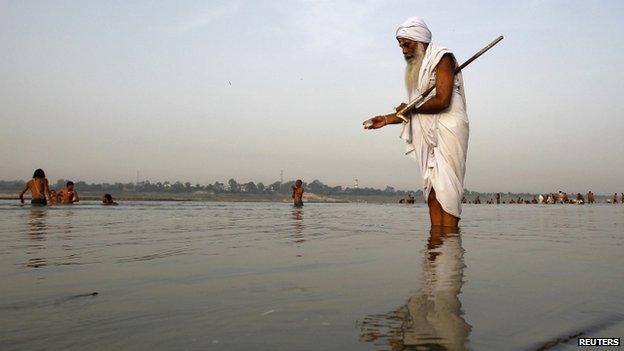India environment watchdog anger over Ganges pollution
- Published
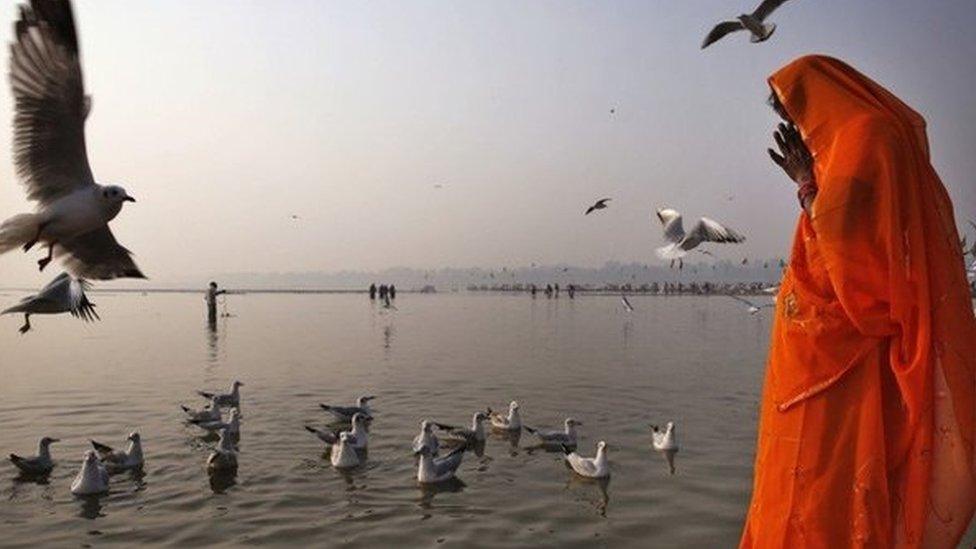
The Ganges is India's most heavily polluted river
India's environment watchdog has criticised the government for failing to clean up the Ganges river.
The National Green Tribunal (NGT) said it was "unfortunate" that both the federal and Uttar Pradesh governments had failed to clean the river.
A petitioner told the NGT on Monday that dead bodies were still being dumped in the heavily-polluted river.
The Ganges is considered holy and supports a third of the country's population living on its floodplains.
"It is really unfortunate that the Ganges continues to be polluted. Why don't you [the state and federal governments] do something? You raise slogans [about cleaning the river], but do exactly opposite of that," the NGT said.
The watchdog was hearing a petition filed by environmental activist Gaurav Bansal.
Mr Bansal told BBC Hindi that people still dump dead bodies in the Ganges from the northern city of Varanasi and the government hasn't been able to stop the practice.

What makes the Ganges special?
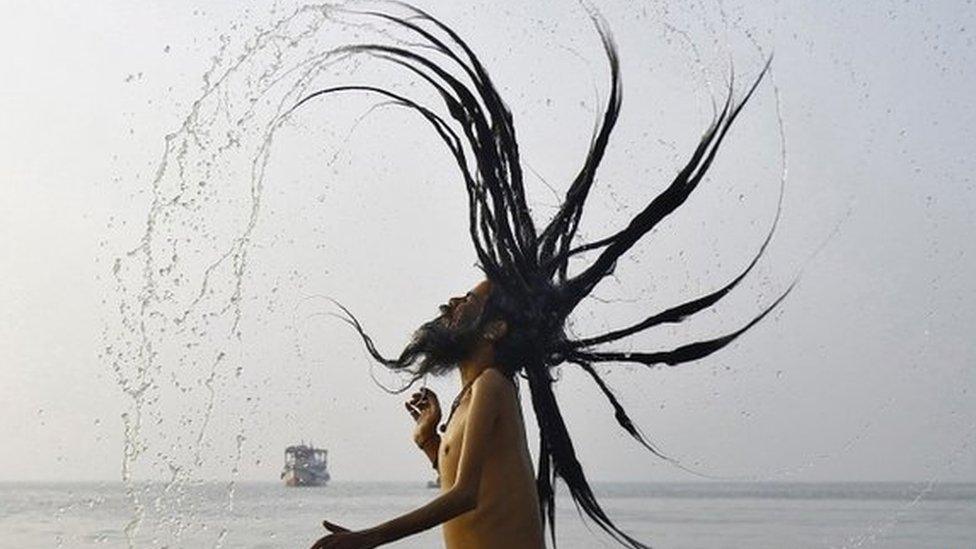
It is the most sacred river for Hindus who worship it as "Mother Ganges".
The river originates from an ice cave under the Gangotri glacier in the Himalayas.
It is a lifeline to hundreds of millions of people who live along its banks, providing them with water and drainage facilities.
Many holy towns are situated on its banks, including Rishikesh, Haridwar, Allahabad and Varanasi.
In Allahabad, the Ganges joins the Yamuna and the mythical, invisible Saraswati river to form the Sangam, where tens of millions gather every few years for the Kumbh Mela festival. Hindus believe a dip in the river will wash away their sins.
Many Hindus go to Varanasi to die because they believe that if they are cremated there, they will leave the cycle of birth and death and attain nirvana.
The devout travel from all over India to take a dip in the Ganges; most take away the sacred river water in plastic bottles and cans to use in religious ceremonies - in recent years there have been concerns about pollution, but for the faithful the Ganges is sacred and even polluted water is accepted as blessings of the river goddess.

"Millions have been spent to clean the river, but nothing has changed. All governments of the past and the current one are responsible for the situation," Mr Bansal said.
Environmentalists say unchecked industrial waste and sewage heavily pollute the river. And the Hindu practice of using the river for cremation also causes pollution.
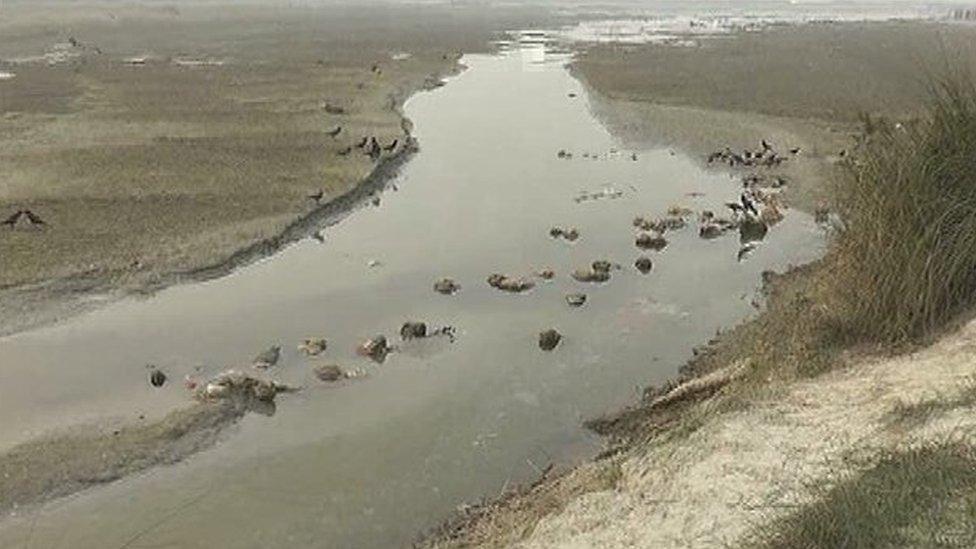
Dead bodies are often found floating near the banks of the river
Many Hindus do not cremate unwed girls and young boys, and many poor people cannot afford cremation so they wrap the body in white muslin and float it in the river.
Prime Minister Narendra Modi had promised to clean up the Ganges during his election campaign speeches in 2014 and his Bharatiya Janata Party government subsequently set an "ambitious" target to complete the task within three years.
But correspondents say that little has changed and the river continues to be one of the most polluted in India.
- Published1 July 2014
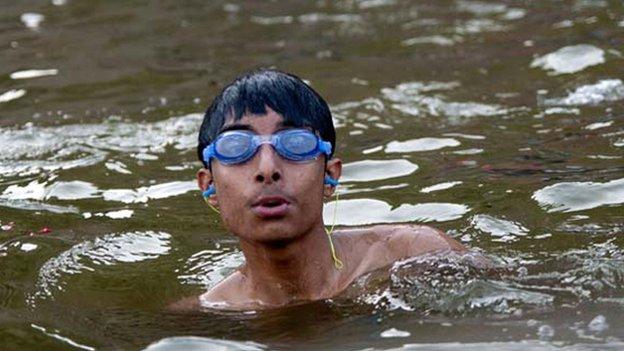
- Published24 January 2013
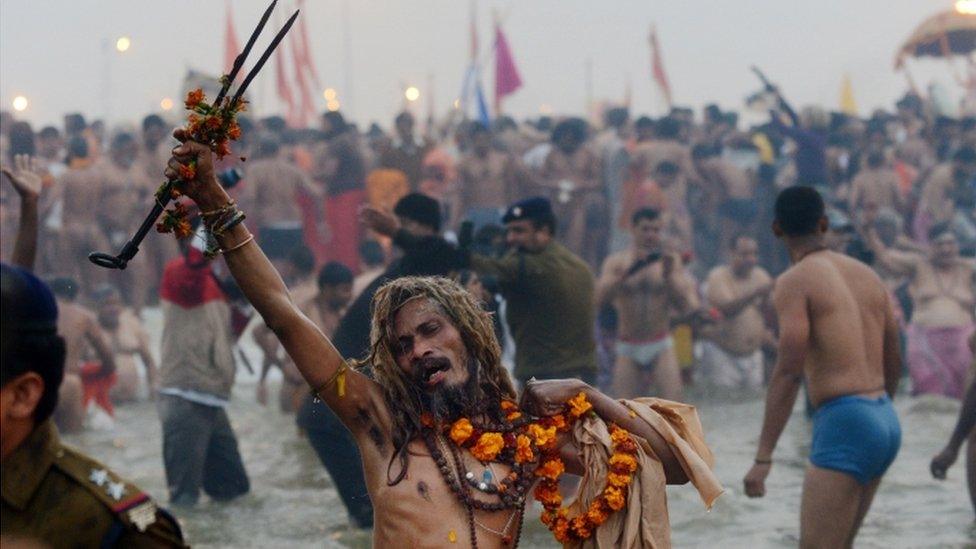
- Published4 September 2014
